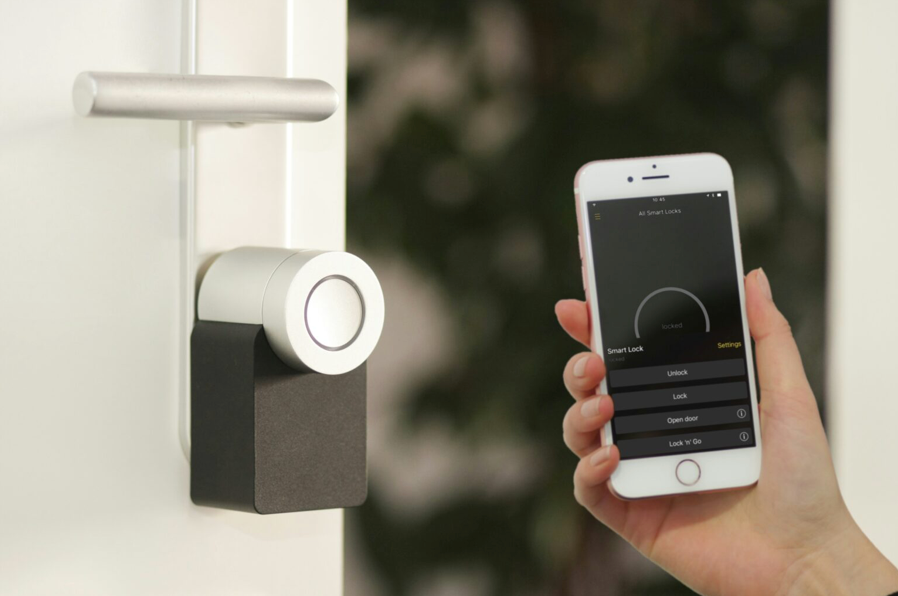Ensuring the Security of Luxury Smart Homes: A Comprehensive Guide to VPNs
- Florence Sutton
- May 9, 2025
- 4 min read
An increasing number of households are adopting smart home technology for enhanced convenience and comfort. Explore methods to mitigate the security vulnerabilities of a connected home.
Luxury smart houses integrate sophisticated architecture with cutting-edge technology, enhancing the accessibility and efficiency of daily tasks. In 2021, 43 percent of U.S. households indicated ownership of a smart home device, highlighting the swift assimilation of this technology.
While appreciating the effortless convenience of modern technologies, it is imperative to prioritize your privacy and security. The integration of intelligent technology in upscale residences is increasing. It offers cutting-edge facilities and necessitates diligent safeguarding of your personal information.
The Allure of Smart Home Technology

Photograph by Unsplash
Smart home technology provides unparalleled ease and efficiency, revolutionizing everyday life. Envision managing your home's climate, illumination, and security systems using your smartphone or spoken commands. This technology conserves time and markedly decreases energy use, enhancing your home's efficiency without compromising comfort.
Prominent attributes such as automated systems and networked equipment enhance the living experience in luxury residences. Automated systems can control various elements, from window coverings to home entertainment systems, tailoring settings to align with your preferences or timetable. The trend of integrating technology into living spaces is expanding as an increasing number of homeowners adopt innovations for a more intelligent and intuitive home environment.
Influence of Artificial Intelligence on Intelligent Residences

Photograph by Unsplash
Artificial Intelligence (AI) transforms smart home technology by improving automation and efficiency, thereby simplifying living and reducing costs. AI-powered technologies in your residence can efficiently regulate electricity consumption to lower expenses.
It enhances energy efficiency and fortifies security with sophisticated surveillance and alert systems. Automated routines conveniently integrate into daily life, from adjusting lighting to preheating ovens.
Nonetheless, new AI capabilities present concerns, especially with privacy and security. Ongoing surveillance and self-directed decision-making by devices may compromise personal information or result in unwanted actions. By reconciling these issues with the advantages, AI poses challenges and remedies for protecting privacy and enhancing security in luxury smart homes.
Privacy Issues with Smart Residences
Smart home gadgets gather data via sensors and user inputs to understand your habits and preferences, thereby improving your house's efficiency and responsiveness. This data automates functions such as modifying your temperature or configuring your security alarms according to your schedule.
Nonetheless, the accumulation of such extensive data may also subject you to privacy vulnerabilities. Possible weaknesses may enable cyber criminals to breach your personal information. For example, 41 percent of smart home users express concerns regarding password abuse, while 39 percent are apprehensive about identity theft.
Moreover, particular privacy issues emerge from monitoring and data-sharing methods, wherein nefarious individuals may obtain or disseminate sensitive information without your consent. It emphasizes the requirement for rigorous security protocols and meticulous data management in your smart home configuration.
Security Vulnerabilities Associated with Smart Technology

Photograph by Unsplash
Prevalent security problems in smart homes encompass hacking and unauthorized access, jeopardizing personal privacy and home security. Cybercriminals may use weaknesses in inadequately secured equipment to seize control of your home systems, including cameras, alarms, smart thermostats, and door locks.
This incursion jeopardizes your privacy and safety, rendering stringent security measures imperative for all smart home technologies. The stakes are significant, as seen by the nearly 422 million Americans affected by data breaches in 2022 alone. Such breaches can result in catastrophic consequences, including identity theft, financial loss, and a lack of security in what ought to be your safest environment.
Comprehending these hazards is essential, compelling you to establish and uphold robust security protocols. It encompasses routine upgrades and the utilization of secure, distinct passwords for your devices and networks.
Strategies and Optimal Approaches
Consider using sophisticated protection measures, such as Virtual Private Network (VPN) services, to augment your privacy and security in smart homes. Utilizing a VPN on devices like Fire TV guarantees that your streaming and browsing activities remain secure from surveillance.
It is very proficient in thwarting unauthorized access to your internet traffic and safeguarding data from potential cyber dangers. IPVanish provides a VPN service for Fire TV, delivering a customized solution that improves online privacy while enabling secure and unrestricted content access.
As a homeowner, implementing best practices is crucial for ensuring a secure smart home environment. Establish a secure home network by utilizing robust, distinctive passwords, and contemplate periodic updates for all connected devices to safeguard against vulnerabilities.
The involvement of technology suppliers is essential. They employ stringent security protocols in their products and provide prompt upgrades to mitigate emerging threats. Remaining aware and proactive substantially mitigates the danger of security breaches and preserves a secure and private home environment.
The Advancement of Intelligent Home Technology
The domain of smart home technologies is swiftly advancing. As of 2023, around 15 billion devices are connected to the Internet of Things (IoT), a figure that analysts anticipate will quadruple by 2030. This expansion presents issues and opportunities regarding privacy and security.
Researchers consistently devise technologies to improve security protocols while maintaining your convenience. Manufacturers incorporate advanced encryption methods and intelligent AI-driven security procedures into gadgets to safeguard data and avert unlawful access. As technology progresses, these enhancements can successfully mitigate existing privacy problems, ensuring that your smart home remains a secure and efficient sanctuary.
Ensuring Security in the Smart Home Era
Homeowners must remain vigilant and proactive in protecting their smart home from any privacy and security threats. Remain informed about the newest advancements in security technologies and pursue the most safe and dependable smart home solutions.










Comments